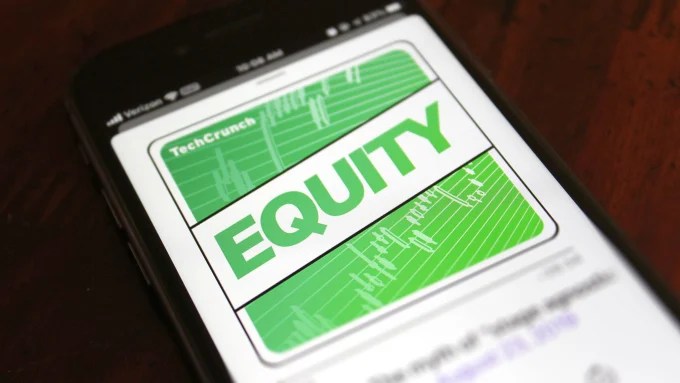Sequoia takes things seriously. The storied venture firm is known to react to macroeconomic events with grand memos aimed at portfolio companies and sometimes the entrepreneurship scene at large.
Most recently, Sequoia created a 52-slide deck, first reported by The Information, titled “Adapting to Endure.” The document reads like a follow-up course to its infamously ill-timed “Coronavirus: The Black Swan of 2020” memo of March 2020.
The firm is not always right in its prognostications — maybe why it stuck to internal musings instead of a Medium post this time — but it does do a service in providing a snapshot of how one of the most weathered, and successful, VC firms of all time thinks about a looming downturn.
TechCrunch+ is having a Memorial Day sale. You can save 50% on annual subscriptions for a limited time.
“Our intention in gathering today is not to be a beacon of gloom,” the deck reads. “But we also believe that winning in the years ahead is going to depend on making hard, decisive choices confronting uncomfortable challenges that may have been masked during the exuberance and distortions of free capital over the past two years.”
Sequoia’s advice largely followed the same script that other venture firms have been using: extend runway, focus on sustainable growth and recognize that an economic recovery may be a ways away. There were, however, some tidbits that stood out, such as a subtweet that I’m guessing is meant for Tiger Global and a precise explanation of how founders should define fluff these days.
The capital provider blames capital itself — capitalism, huh?
One of the clearest subtweets within the deck is Sequoia’s commentary on cross-over funds. The firm says that “cheap capital is not coming to the rescue” at this moment:
Crossover hedge funds, which have been very active in private investing over the last few years and have been one of the lowest cost sources of capital, are tending to wounds in their public portfolios which have been hit hard.
Many don’t even have the capacity to invest, as the drawdown in their public portfolios has created an imbalance in their hybrid funds where their private investments (which have not been as dramatically marked down) represent more than the maximum private capacity within their funds. It might not translate into your valuation overnight, but over the medium and long term, disciplined, durable growth is always rewarded and translates into meaningful value appreciation.
Sequoia is calling out cross-over funds just months after it said it had shaken up its own fund structure. The firm, following General Catalyst and Andreessen Horowitz’s lead, registered as a financial adviser to back non-traditional assets outside of private markets.
In other words, it pivoted so it could back public companies — a move that looked opportunistic at the time and now looks like unfavorable exposure. This investment focus is what Tiger does today, and we all know how that’s going.
More money does not mean more success
Feeding into the above, the firm wants portfolio companies to not just assume that the next round of funding may be farther away than expected, but also that money may not solve all your problems. We agree.
The memo reads:
WeCrashed was a great mini-series and many of you have watched it … but having all the money is not really the right lesson. If the one with all the money is the one that wins, how could Zappos go up against Amazon and win the shoe category? How could DoorDash come from behind and emerge as the market leader beating UberEats? The one who is best prepared for the fight. At Sequoia, we believe that the one who wins is the one most prepared.
Next, the firm calls on founders to make hard decisions. If you’ve talked to any investor over the past few weeks, they’ll cite the idea of wartime CEOs versus peacetime CEOs, saying that leaders need to step up and transition their idea of focus to get through this difficult time.
Every crash starts with founders not confronting reality. As the founder, as the CEO, you have to be the one to confront reality. There is only so much that your team or your board will push back.
Venture capitalists, Sequoia included, played a massive role in clouding reality with larger-than-ever fund sizes, massive valuation markups and broken-record hype that could be confused as permission to spend egregiously. I’m not saying it’s entirely venture’s fault, but they could’ve used an extra sentence there.
I do like that Sequoia says that there’s a limit to which a board may push back. Incentive alignment is at the heart of every decision between investors and entrepreneurs. In a downturn, some VCs may want a soft acquisition in order to get their initial investment back, while some founders may want to push just a few months longer to see if they can get the metrics for a coveted extension round.
Which makes for the perfect segue into a useful framing tucked in the bowels of the presentation.
The financial degrees of freedom
This is my favorite part of the memo because it clearly describes how founders should be viewing their financial priorities with a framework titled “The financial degrees of freedom.”
Sequoia says that the best degree is if a company just earns more from customers, followed by improving economics. If those two steps aren’t working, the firm recommends that startups should cut excess but also says they “should have done that.”
The very last resort? If necessary, raise equity or debt, “even if it’s expensive.”
To some people, this may be Economics 101, but to a founder who was told to take capital when available, keep taking large swings and run for growth at all costs, it can be healthy to hear that they are in the business of getting customers (not just convincing investors that they can get customers).
It’s the sound of a re-correction. It just may take a reckoning to get there first.

























